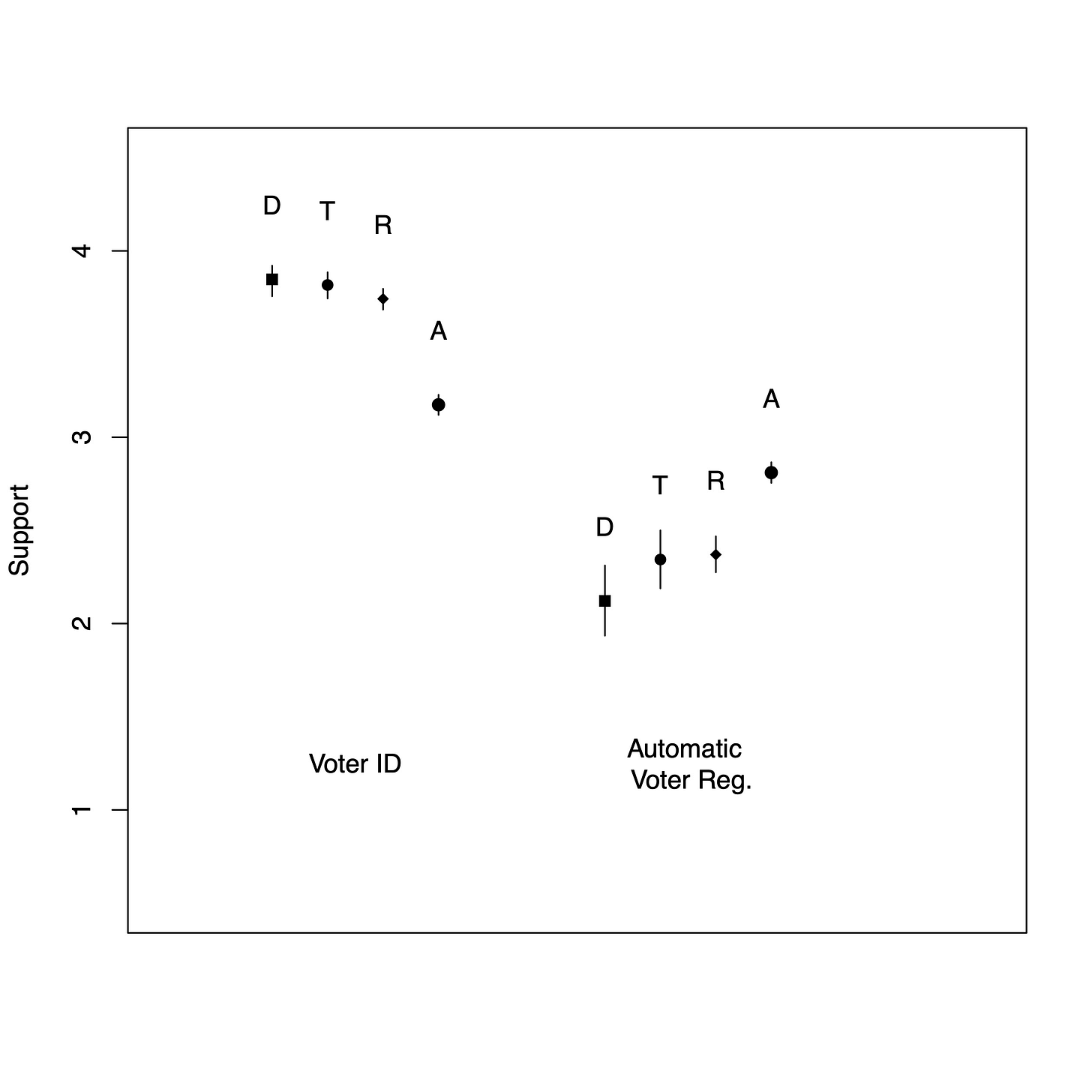JULY 31st, 2023 – With the New York Times releasing a GOP primary poll today under the headline “Trump Crushing DeSantis and GOP Rivals,” I wanted to release a separate poll I recently oversaw which was administered by NORC using its AmeriSpeak panel.
The survey was fielded between June 28th, 2023 and July 14th, 2023, with a total sample of 1,540 American adults. Here, I focus primarily on a subsample of 594 who identified as Republicans or leaned Republican; all were asked a question about their preference among the major candidates in the 2024 Republican presidential primaries. I further removed 15 respondents who answered that they wouldn't vote in the Republican primary and 2 who skipped the question, reducing the sample to 577 Republicans.
The survey was conducted online with respondents recruited offline via population-based sampling methods. As a consequence of this sampling strategy, its respondents may be less politically engaged compared to some online, opt-in samples. I report the results below using weights generated by NORC from variables including age, gender, Census division, race/ethnicity, and education as well as the interactions of age and gender, age and race/ethnicity, and race/ethnicity and gender. However, the unweighted results for candidate preference are never different by more than 2 percentage points.
Late in a survey questionnaire that had addressed other questions related to nationalization, federalism, and contemporary political issues, Republican respondents were asked, "If you had to choose this week to vote for one of the primary candidates to be the presidential nominee for the Republican Party in 2024, which candidate would you vote for?" and were provided with nine candidate options.
42% – Donald Trump
23% – Ron DeSantis
5% – Mike Pence
5% – Nikki Haley
4% – Tim Scott
2% – Chris Christie
2% – Vivek Ramaswamy
0.3% – Asa Hutchinson
0.3% – Doug Burgum
16% – Unsure
Issues and Candidate Support
The survey also included a series of questions about contemporary political issues. In the figures, Trump primary supporters are denoted with a "T" while DeSantis supporters are denoted with a "D." "R" indicates all Republican primary voters and "A" indicates all survey respondents. All issue questions provided four response options, from "strongly oppose" (1) to "strongly support" (4).
Overall, the attitudes of Trump supporters, DeSantis supporters, and all Republicans are often similar across issues. As expected, they are also markedly more conservative than all surveyed adults. However, Trump supporters are somewhat more supportive of deporting unauthorized immigrants than DeSantis supporters or all Republicans—and somewhat less supportive of creating a pathway to citizenship. DeSantis supporters are slightly more likely to want to increase drilling and mining on public lands relative to other Republicans, and slightly less likely to support increased taxes on fossil fuels.
DeSantis supporters are also somewhat more likely to back work requirements for Medicaid relative to Trump supporters or all Republicans—and much more likely than all surveyed adults. Similarly, DeSantis supporters are somewhat less likely to support Medicare for All. DeSantis backers are also slightly more likely to support a nationwide abortion ban and slightly less likely to support making abortion legal nationwide.
DeSantis supporters and Trump supporters both show very high levels of support for a voter ID requirement—but DeSantis supporters are somewhat more opposed to automatic voter registration. Still, Trump and DeSantis supporters are typically quite close in their issue positions, especially compared with the overall sample of American adults.
* Thanks to Will Halm, Melissa Huerta, and Josearmando Torres for research assistance.





